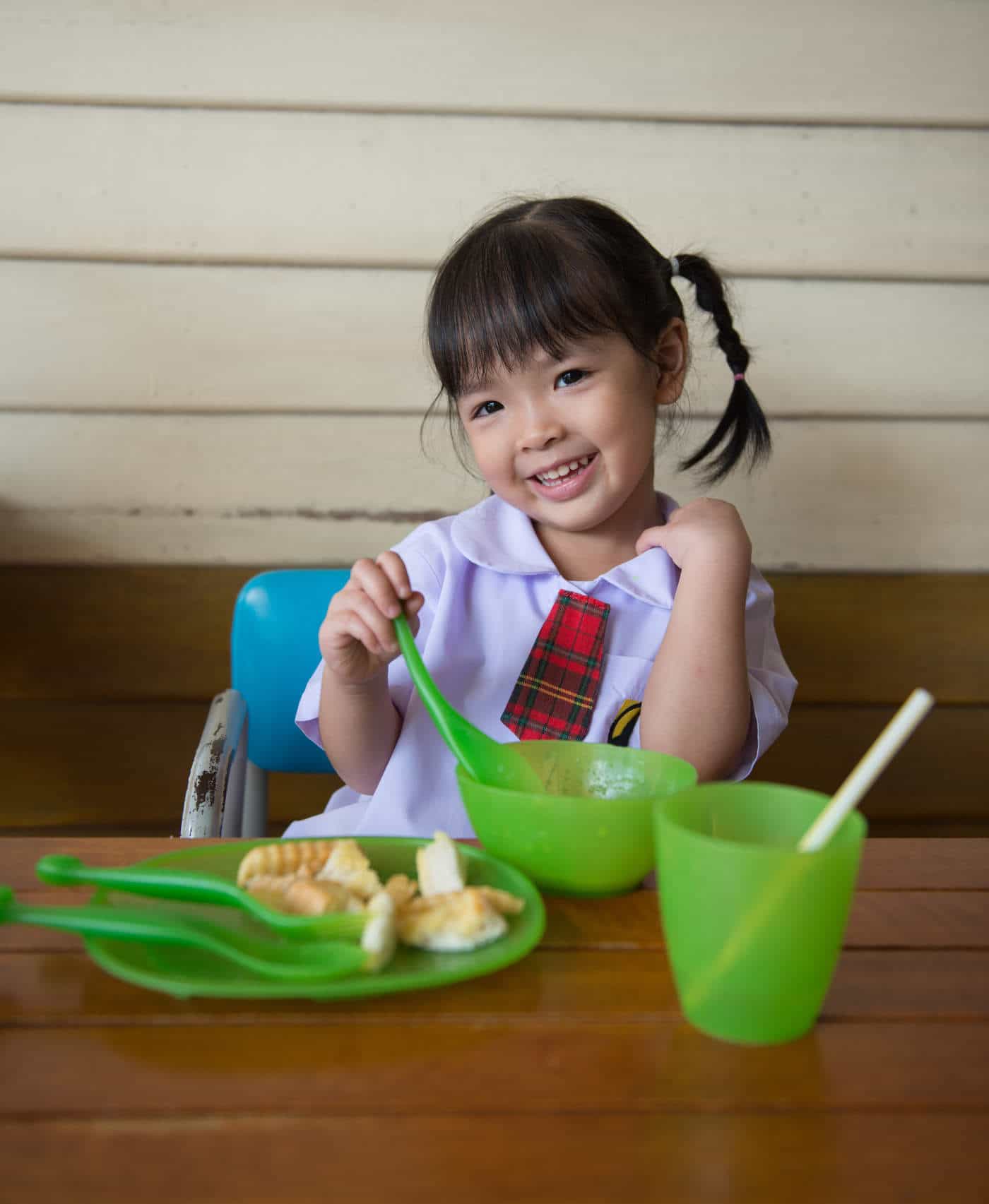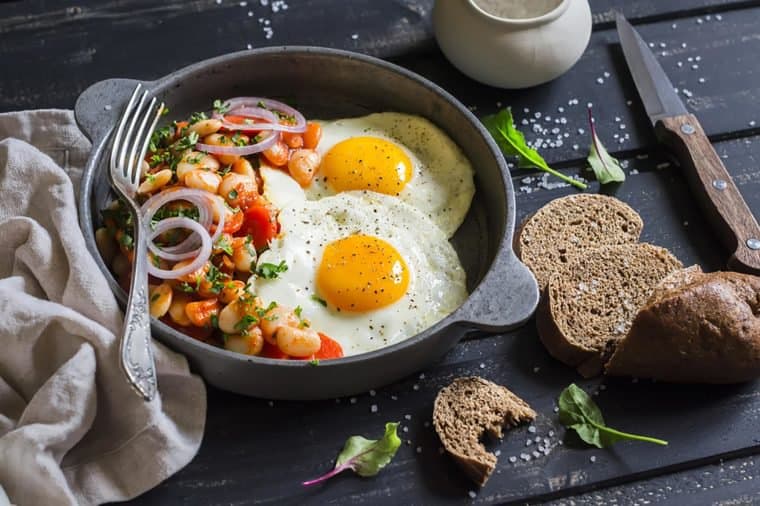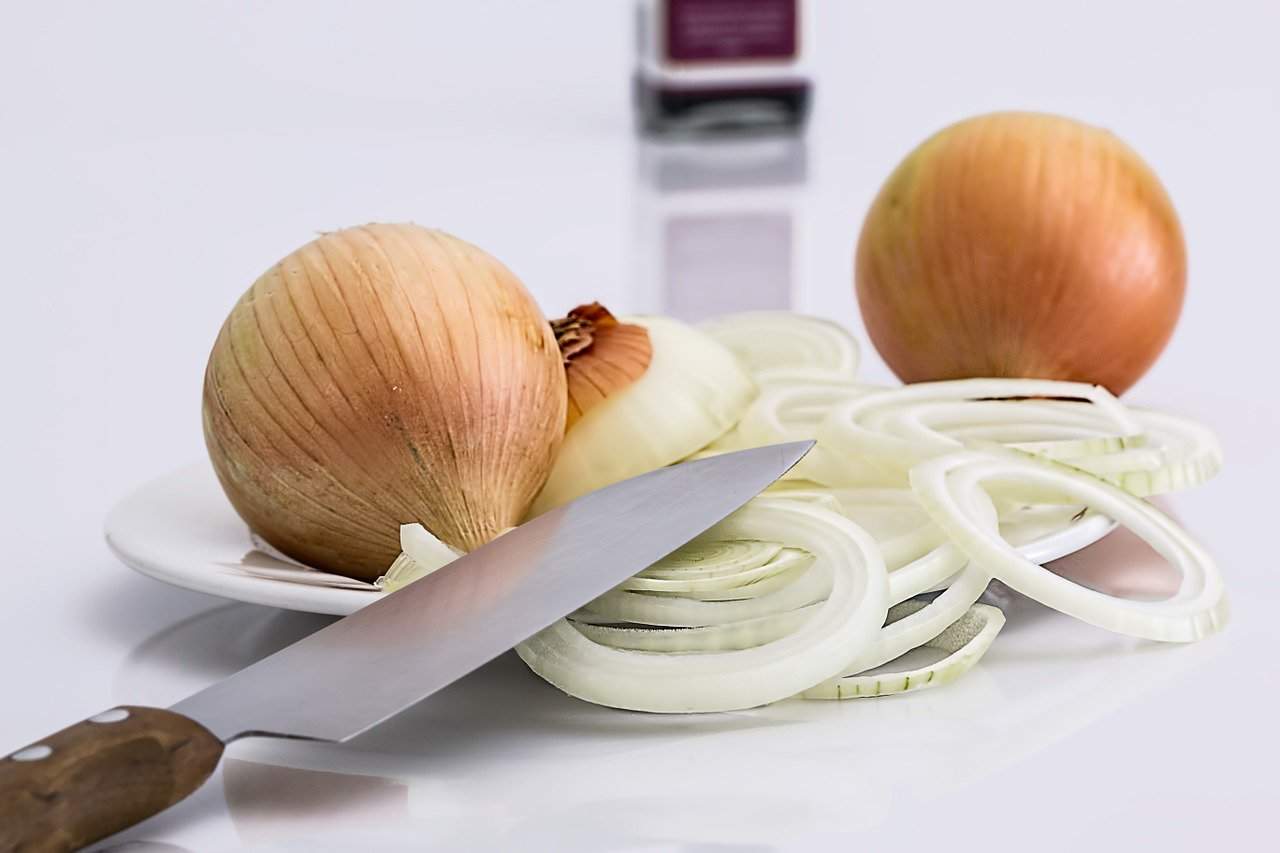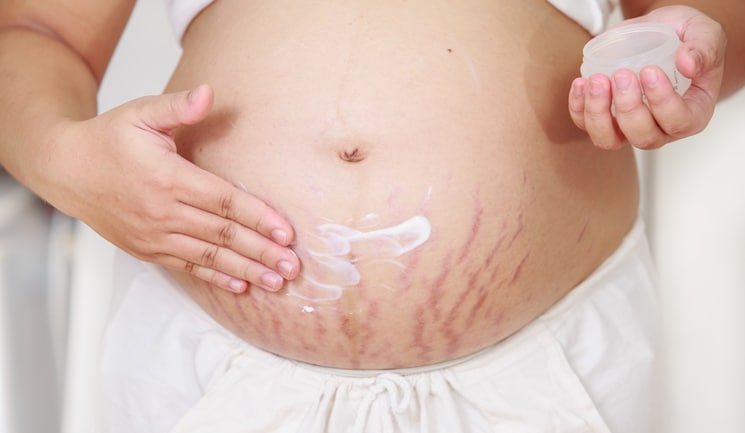Contents:
- Medical Video: Kids! Small Steps to a Healthy You
- Let the children eat according to their tastes
- Food for kindergarten children
- Suggestions for healthy snacks
- Snacks can be stored for special occasions
- A strict diet is not recommended
- Encourage physical activity
- Healthy drink
- Food tips for growing children
- Important to remember
Medical Video: Kids! Small Steps to a Healthy You
When children start entering kindergarten or school, a new routine begins. Their regular intake of food is needed throughout the day to keep them active and concentrate while studying. Some children in this age group are still fussy, so give them a variety of lunch and snack provisions, and give children the freedom to eat according to their tastes without coercion.
Let the children eat according to their tastes
Children can decide how much food they need to do activities and grow if they are given the freedom to eat according to their preferences. Forcing children to eat food or give candy in return can cause overeating problems later on. Allow your child to decide how much food he needs. This is usually not a problem for most children if a variety of healthy foods are offered regularly.
Offer small portions first and give your child more if they are hungry. The portion of children's food will vary, because the amount of food the child needs depends on what they have eaten during the day.
Food for kindergarten children
Children continue to learn new skills and ideas about food when they eat outside the home. They can help prepare their lunches and help their caregivers make healthy lunches. Preparing food together is a great opportunity to give children lessons on nutrition, such as milk making strong bones or 'broth provide energy to play.
Suggestions for lunch like:
- Bread, fresh fruit slices and yogurt
- Crepe / wheat bread contains lean meat and one serving of salad, and dried fruit and some boxes of white milk
- During hot weather, milk and beverage products can be cooled in and taken to kindergarten.
Suggestions for healthy snacks
Snack is an important part of food intake for energy and child nutrition. What children eat is more important than when they have to eat. Children who like to eat sweets and chips may not get all the nutrients needed for good health.
Healthy snack suggestions like:
- Fresh and dried fruits, or fruits that are packaged in natural juices
- Yogurt or cheese
- Fruit bread, plain bread or muffins
- Bread, rice cakes or jam topping biscuits
- Cut vegetables and dipping sauce
Snacks can be stored for special occasions
At this age, children can eat independently and enjoy the social aspects of eating. Having friends means they will eat outdoors more often. Maybe they sometimes eat at fast food restaurants. They might also go to parties with lots of sweet foods and fatty snacks. These foods will not be detrimental as long as good nutrition continues to be given every day.
Food is an important part of special events for everyone and must be enjoyed. However, foods that are high in sugar, salt, and "empty calories" are better served only for special occasions and are not recommended for school supplies every day.
A strict diet is not recommended
Children grow at a stable level during kindergarten and in the early years of school. A strict diet or low-fat diet is not recommended because of the high energy and nutritional needs of children.
If you are worried about excessive weight, you can do a number of good approaches, such as:
- Consult a doctor
- Improve healthy eating habits for the whole family
- Encourage regular physical activity for everyone
- Limit the time spent watching television
Encourage physical activity
Children must be encouraged to move actively as early as possible. Physical activity helps children feel better and increases a healthy appetite. For this age group, it is recommended to play three hours per day playing actively and only one hour or less watching television or DVD. Formal exercise is not so necessary for child fitness.
Children can benefit from encouragement and guidance which includes:
- Reduce the time watching television
- Play on the city terrace or garden
- Take a walk to the park or playground
- Teach your child to swim
- Participate in activities in kindergarten and school
- Engage in fun routine activities with your children.
Healthy drink
Active children need lots of fluids. About three glasses of milk a day can provide adequate calcium intake for bone development; water needs must be given at other times. Sweet drinks such as juices, soft drinks or other sweet drinks are not needed in the child's diet. Low-fat milk can be combined with fresh fruit for smoothies as an afternoon snack.
Food tips for growing children
You can do a number of tips below:
- Offer a variety of foods every day
- Give healthy food to all family members
- Let your child decide whether they are full or hungry
- Offer healthy snacks between meals
- Include children in preparing food
- Give water instead of sweet drinks
- Enjoy meal time and family activities together
Important to remember
- Children can decide how much food they need to do activities and grow if they are given the freedom to eat according to their tastes
- A strict or low-fat diet is not recommended because of the high energy and nutritional needs of children
- High-calorie foods should only be given for special occasions and not recommended for lunch every day
- Reduce the time to watch television and recommend playing actively












